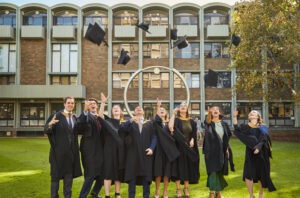Australia faces losing international students to other destinations if they continue to be treated like economic commodities, according to education pathway provider Study Group Australia.
Managing director of Study Group Australia Alex Chevrolle said a reset button needed to be hit if Australia was to prevent countries like Canada, the US and the UK from surpassing it in terms of attracting international students in the future.
Alex Chevrolle, managing director, Study Group Australia, said policies about international students needed to better reflect the significant long-term benefits they offer as future residents.
“Our persistent focus on the economic contribution merely reinforces a negative perception that we treat them as cash cows who don’t deserve the rights we would afford to potential citizens,” Mr Chevrolle said.
“International students make a significant contribution to Australian society but our persistent focus on their economic impact risks commoditising and dehumanising them, and it continues to damage our reputation as a leading
“Much of the education sector’s focus on international students has been short term and dollar focused, but their contribution is far richer and broader. They are talented, future Australians making a big human contribution as part of our community.”
Also Read: How A QUT MBA Catapults Careers Into Consulting World
A Deloitte Access Economics report in 2015 titled: The Value of International Education to Australia noted beyond the normal measures, there are a wide array of benefits we as a country and society accrue from international students. This included: economic benefits stemming from increased entrepreneurship; knowledge exchange and international collaboration; economic benefits derived from trade and investment links and soft diplomacy in Australia and in the countries from which they come; and social benefits flowing from improved cultural literacy, stronger cultural linkages and enhanced cultural capital generated in Australia and in the source countries.
The report indicated at the time international students would add 130,000 skilled workers to the Australian workforce and make a significant contribution to Australian regional communities, with at least 5% of them living and studying in regional areas.
Mr Chevrolle said: “Census data indicates highly educated and higher income migrants boost productivity and workforce participation, as well as contributing to the economy and society through higher taxes. Furthermore, they contribute to the increasingly diverse fabric of Australia’s cultural life.
“It’s time we changed our message and approach to international students; we need to make them feel welcome again and positive about considering Australia as a potential new home for they are a critical part of a healthy, prosperous Australia for all.”







